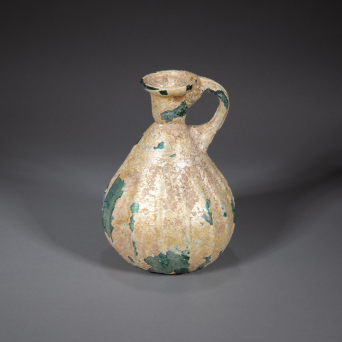Technological advances along the Silk Road Blown and Tooled: Western Asian Influences in Ancient Glass in China
The University Museum and Art Gallery (UMAG) of the University of Hong Kong (HKU) is pleased to present an exhibition of early glass vessels that display technological and stylistic influences from countries along the Silk Road. Objects have been selected from a recent donation to UMAG along with additional loan items, which are either of Western Asian or Chinese origin. Though the technique of blowing glass was first developed by the Phoenicians in the Roman Empire in the first century BCE, the design outline of many shapes relates to Syro-Palestinian forms of the first century CE, and to Islamic Persian models found in both ceramic and metalware of the sixth century CE. All of these examples show an eastward dissemination of glass-making techniques and decorative styles.
The international transfer of manufacturing practices, object types and design features make this particular collection of glassware a fascinating subject of study, as the knowledge transfer and trade along the Silk Road since the first millennium CE complicates the artefact’s origins and cultural influences. Interestingly, this fine and fragile artform has been treasured for centuries and excavated objects from tomb sites often include both imported and Chinese items.

